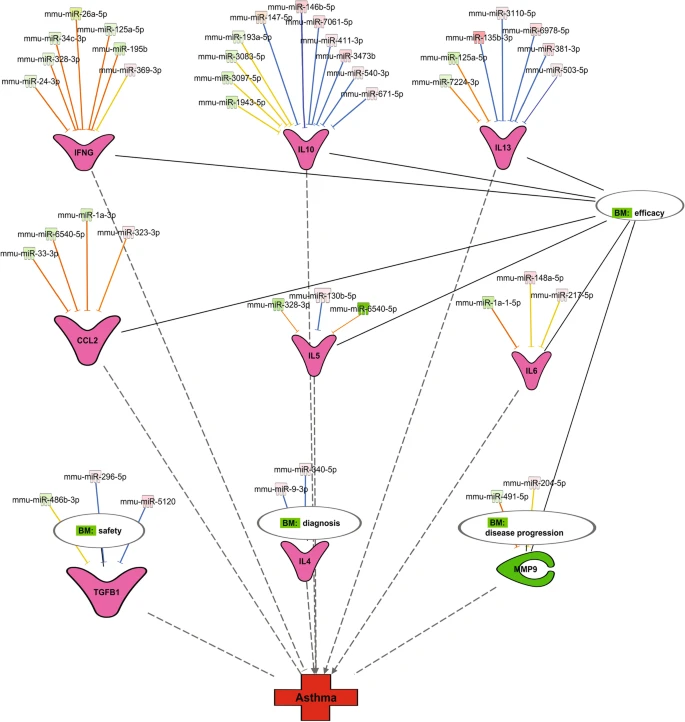Research – Open Access
Paulene Cay, Cherie A. Singer & Mariam A. Ba
Respiratory Research volume 23, Article number: 378 (2022)
Abstract
Background
To date, reliable biomarkers for asthma have not been identified. MicroRNAs (miRNAs) are small, non-coding RNAs that negatively regulate post-transcriptional gene expression, and they are involved in various diseases, including asthma. MiRNAs may serve as ideal biomarkers due to their ability to regulate multiple pathways. This study aims to identify miRNA biomarker signatures for asthma.
Methods
We used the house dust mite (HDM) mouse model of allergic inflammation. Mice were phenotyped by assessing lung function, allergic response, airway inflammation, and remodeling. The miRNA signature profiles in serum and lung tissue were determined by small RNA sequencing, and data were analyzed using Qiagen CLC Genomics Workbench. To identify relevant gene targets, we performed mRNA sequencing, followed by miRNA-targets analysis. These miRNAs and targets were subject to subsequent pathway and functional analyses.
Results

Mice exposed to HDM developed phenotypic features of allergic asthma. miRNA sequencing analysis showed that 213 miRNAs were substantially dysregulated (FDR p-value < 0.05 and fold change expression > + 1.5 and < − 1.5) in the lung of HDM mice relative to the control mice. In contrast, only one miRNA (miR-146b-5p) was significantly increased in serum. Target analysis of lung dysregulated miRNAs revealed a total of 131 miRNAs targeting 211 mRNAs. Pathway analysis showed T helper 2/1 (Th2/Th1) as the top significantly activated signaling pathway associated with the dysregulated miRNAs. The top enriched diseases were inflammatory response and disease, which included asthma. Asthma network analysis indicated that 113 of 131 miRNAs were directly associated with asthma pathogenesis.
Conclusions
These findings suggest that most dysregulated miRNAs in the HDM model were associated with asthma pathogenesis via Th2 signaling. We identified a panel of 30 miRNAs as potential biomarker candidates for asthma.
